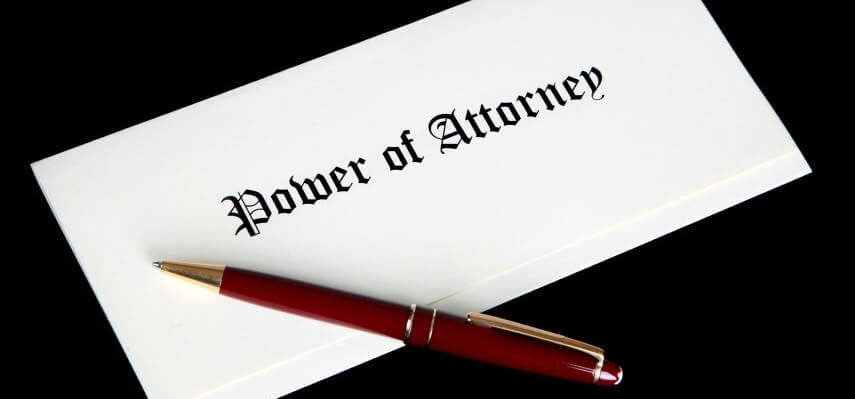Understanding a Notarised Power of Attorney: What You Need to Know
- Prasanna Devi
- Jul 25
- 4 min read
A notarised power of attorney is one of the most important legal documents that can grant someone the authority to act on your behalf. Whether you're managing property overseas, handling finances during a medical absence, or empowering someone to make healthcare decisions, a notarised power of attorney ensures your decisions are respected and legally valid.
But what exactly is a notarised power of attorney? How does it work? And why is notarisation necessary? This microblog breaks down everything you need to know.

What is a Power of Attorney?
A power of attorney (POA) is a legal document that gives one person (known as the agent or attorney-in-fact) the authority to act on behalf of another person (the principal). The scope of this authority can be broad or limited depending on the terms of the document.
There are different types of power of attorney, including:
General power of attorney – Grants broad powers.
Special or limited power of attorney – Limits authority to specific tasks.
Durable power of attorney – Remains valid even if the principal becomes incapacitated.
Medical power of attorney – Authorizes healthcare decisions.
What Does “Notarised” Mean?
A notarised power of attorney means that the document has been officially verified by a notary public. The notary confirms the identity of the person signing and ensures they are doing so willingly and without coercion.
Notarisation serves several purposes:
Verifies the identity of the signer.
Adds legal weight to the document.
Reduces risk of fraud.
Required for international or high-value legal matters.
Without notarisation, some institutions — especially banks, government agencies, and overseas entities — may refuse to recognize your POA.
Why is a Notarised Power of Attorney Important?
Having a notarised power of attorney gives credibility and enforceability to your document. In many countries, especially when dealing with cross-border legal matters, notarisation is a must. For instance:
Selling property in another country?
Managing a parent’s bank account while abroad?
Filing documents with a foreign government?
In these cases, only a notarised power of attorney will be accepted.
Additionally, in legal disputes, a notarised document holds more weight in court than one that’s unsigned or informally executed.
How to Get a Notarised Power of Attorney
Here’s a basic process to obtain a notarised power of attorney:
Draft the POA Document: You can consult a lawyer or use a template that fits your needs.
Visit a Notary Public: Bring a government-issued ID and the completed POA document.
Sign in Front of the Notary: The notary will witness your signature and apply their official stamp or seal.
Copies and Record-Keeping: Keep multiple copies of the notarised power of attorney for use when needed.
In some jurisdictions, the POA may also need to be apostilled or legalized for use abroad, especially if you’re sending it to another country.
Use Cases for Notarised Power of Attorney
A notarised power of attorney can be used for many important purposes, such as:
Buying or selling real estate
Managing bank accounts
Making healthcare decisions
Handling business transactions
Representing someone legally or in court
It becomes particularly critical for elderly individuals, people traveling abroad, or those in the military who want to ensure their affairs are managed properly.
Notarised Power of Attorney vs. Regular POA
Many people wonder: what’s the difference between a notarised power of attorney and a regular one?
The main difference lies in legal enforceability. A regular POA might work in informal settings, but if you're dealing with formal institutions, a notarised power of attorney is often required. In most real estate transactions and international dealings, the notarisation is non-negotiable.
Final Thoughts
A notarised power of attorney is more than just a piece of paper — it’s a powerful legal tool that protects your interests, ensures your wishes are followed, and gives your chosen representative the legal backing to act on your behalf.
Always consult a legal professional if you're unsure about how to draft or notarise a POA. Making sure your notarised power of attorney is done correctly can save you and your loved ones a lot of time, stress, and potential legal complications.
FAQs
Q1: Is notarisation of a power of attorney always required? A: No, it depends on your country and the intended use. However, for international use, real estate transactions, and dealings with banks or government agencies, a notarised power of attorney is typically mandatory.
Q2: Can I notarise a power of attorney online? A: Some jurisdictions allow remote online notarisation (RON), especially after the COVID-19 pandemic. You should check your local laws to see if your POA can be notarised online.
Q3: How long is a notarised power of attorney valid? A: The validity depends on the terms in the document. Some POAs are durable (valid indefinitely or until revoked), while others are limited to a specific time or task. Notarisation doesn’t affect duration — it only adds legal authenticity.
For More : https://prasannadevi.com.sg/




Comments